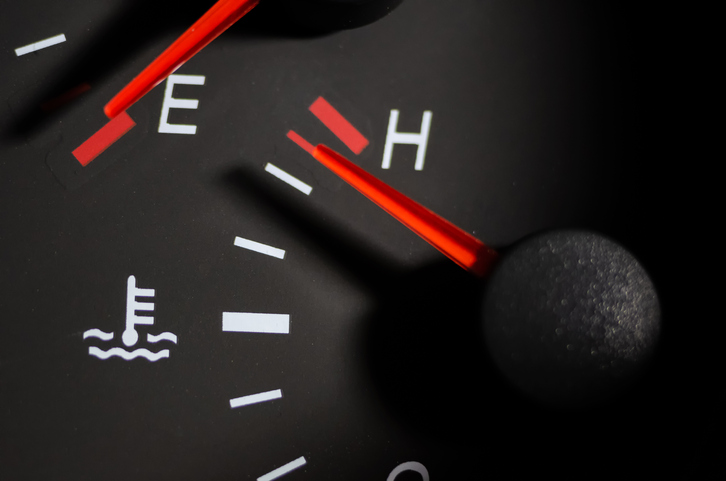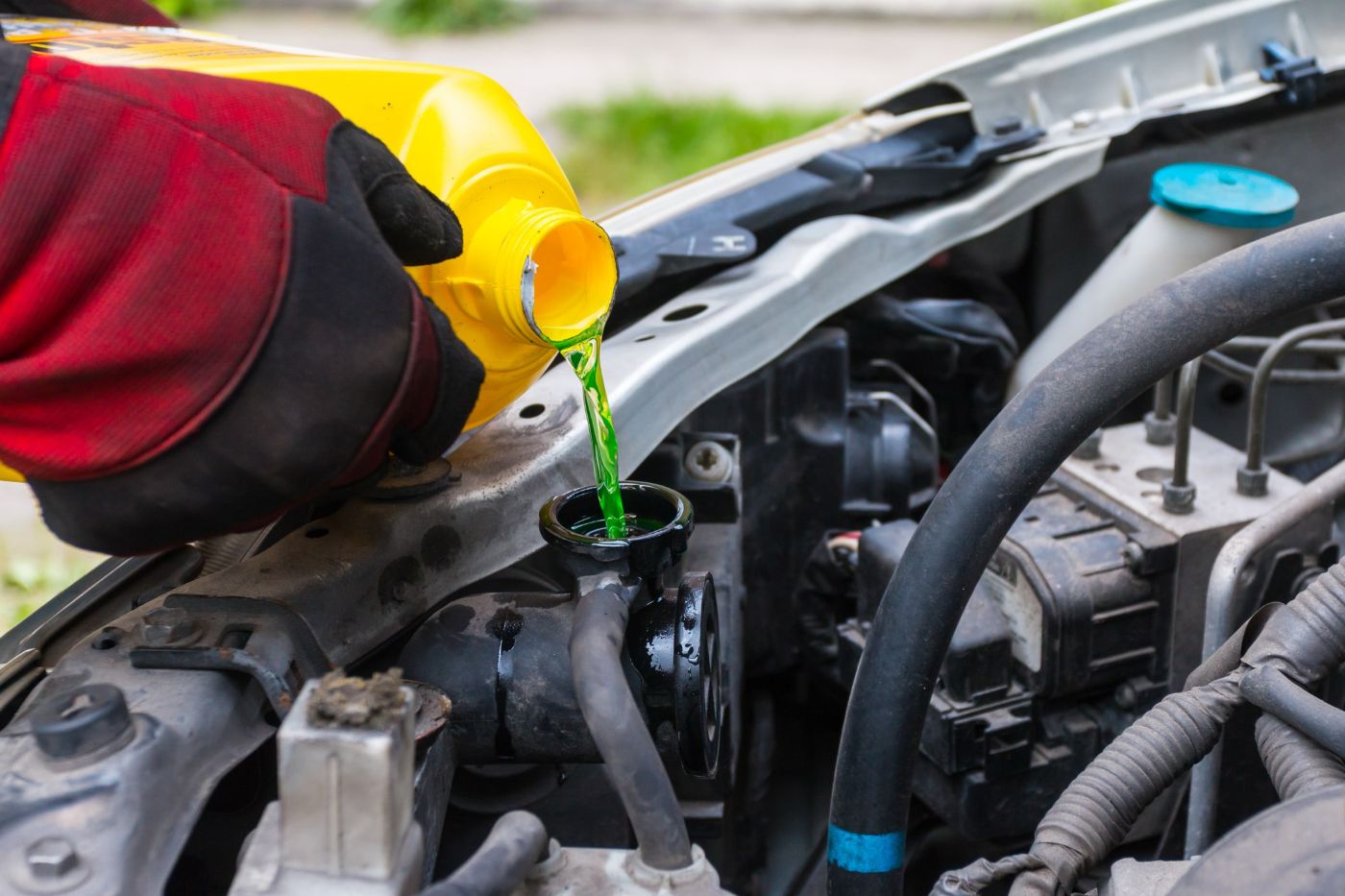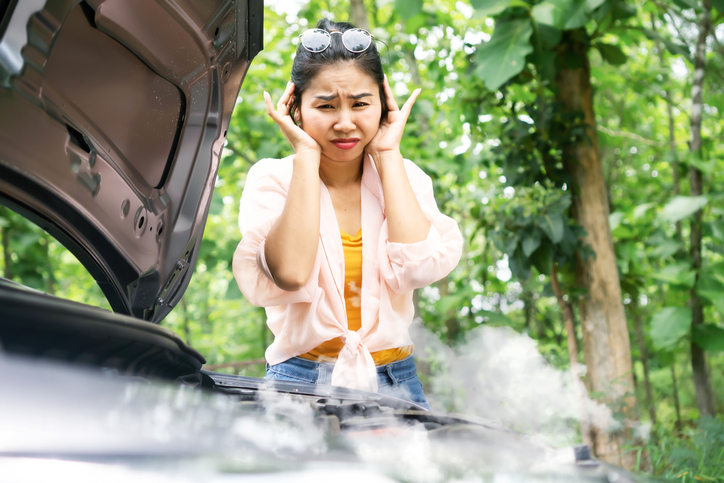Your car’s engine relies on its cooling system to keep its operating temperature stable. However, there may be times when the cooling system is unable to function as it should, which leads to engine overheating. This can be a major issue that not only affects the performance of your car but can also cause irreversible damage if not addressed promptly.
As a responsible car owner, it’s crucial to understand the reasons behind engine overheating and know how to prevent it. In this guide, we will explore the common causes of engine overheating, signs to look out for, and practical tips to prevent this problem.
Reasons that Cause a Car Engine to Overheat
In an ideal situation, engines should run between 195 degrees and 220 degrees. This normal car engine temperature range ensures optimal functioning and efficiency, allowing the engine to perform at its best.
However, your engine can overheat when there are problems with the engine components or the engine’s cooling system. There are various reasons that can cause the engine temperature to rise above normal, such as a faulty engine coolant temperature sensor or a clogged radiator. Here are some of the most common causes of engine overheating.
Read More: Car Care Tips and Why You Should Do It
1. Engine Overheats Because of Faulty Thermostat
The thermostat acts as a valve that regulates the flow of coolant into the engine. If the thermostat malfunctions, it can restrict the coolant flow, leading to overheating. Signs of a faulty thermostat include coolant leaks and frequent temperature fluctuations. If your engine temperature warning light frequently comes on and off, it’s advisable to check the thermostat.
2. Engine Overheats Because of Faulty Radiator Fan
The radiator fan plays a critical role in cooling the coolant. If the radiator fan is faulty, it fails to dissipate the heat from the engine, resulting in overheating. Common issues that can cause a radiator fan failure include a faulty engine coolant temperature sensor, motor problems, damaged wiring, or a loose fuse. It’s essential to address these issues promptly to prevent overheating.
3. Engine Overheats Because of Dirty or Clogged Radiator
Rust buildup in the radiator pipes can obstruct the flow of coolant, reducing its ability to dissipate heat effectively. Additionally, when the radiator fins are clogged with dirt, leaves, or insects, the airflow is blocked, preventing proper cooling. Regular radiator maintenance is crucial to avoid these problems and prevent engine overheating.
4. Engine Overheats Because of Broken Water Pump
The water pump is responsible for circulating the coolant through the cooling system to absorb heat from the engine. A broken water pump can disrupt the coolant flow, leading to overheating. Common issues with the water pump include a worn-out impeller or a loose connection between the impeller and impeller shaft. Regular inspection and maintenance of the water pump can help prevent a high engine temperature.
5. Engine Overheats Because of Leaking Head Gasket
The head gasket seals the engine block and prevents the mixing of coolant and engine oil. A leaking head gasket can introduce gas from the cylinder into the cooling system, increasing pressure and pushing out coolant. Depletion of coolant eventually leads to engine overheating. Prompt detection and repair of a leaking head gasket are essential to prevent further damage.
6. Engine Overheats Because of Leaking or Dried Up Radiator Coolant
Insufficient coolant in the radiator hinders the cooling system’s ability to dissipate excess heat from the engine. Coolant leaks can occur due to a faulty water pump, radiator leaks, damaged hoses, or a malfunctioning radiator cap. Low coolant levels without visible leaks may indicate coolant evaporation caused by a leaking head gasket or a faulty radiator cap.
7. Engine Overheats Because of Trapped Air in The Cooling System
Air bubbles can form in the cooling system, reducing its efficiency in regulating engine temperature. Incomplete radiator fill-up or improper coolant flush can lead to air bubble formation. Low coolant levels contribute to water evaporation, creating air bubbles. A radiator bleed can eliminate trapped air and restore the cooling system’s functionality.
Read More: Top Four Signs of a Malfunctioning Car Air Conditioner

Signs that Your Engine is Overheating
To prevent irreversible damage to the engine, it’s crucial to recognize the signs of an overheating engine. Keep an eye out for the following indicators:
- The engine temperature gauge on your dashboard rises above the normal temperature. Some cars only have an engine temperature warning light that lights up when the engine temperature rises above normal.
- White smoke or water vapor rising from the engine bay.
- A burnt or acrid smell from the engine. A burnt smell is usually a sign of leaking engine oil while leaking radiator coolant usually smells sweet.
What to Do When Your Car’s Engine Overheats?
If you encounter an overheating engine, it’s essential to take immediate action to prevent further damage. Follow these steps:
- Stay calm: Panicking won’t solve the problem. Maintain composure and focus on safely addressing the situation.
- Stop at a safe location and turn off your engine: If you’re driving on the highway, at a narrow road, or a busy intersection, pull over to a secure area and turn off the engine to prevent further damage. Driving while your engine is overheating can result in major damage to your engine or even cause a fire.
- Avoid opening the hood immediately: Give the engine time to cool down before opening the bonnet. Opening it too soon may expose you to hot vapor or smoke.
- Add water and seek professional help: Once the engine has cooled down, you can add water to the radiator as a temporary measure. However, it’s crucial to visit a nearby workshop for a comprehensive inspection and proper repairs. If you’re unable to start the engine, contact a tow truck to transport your car to the workshop.

Tips to Prevent Engine Overheating
Prevention is always better than cure. By following these simple tips, you can minimize the risk of your car’s engine overheating:
- Regularly check the coolant reservoir: Ensure that the coolant reservoir is properly topped off to maintain the cooling system’s efficiency.
- Clean the radiator: Inspect the radiator for any debris, such as dirt, leaves, or insects, that might obstruct airflow. Clean the radiator regularly to promote proper cooling.
- Check the radiator cap: Verify that the radiator cap’s spring is intact and properly maintains pressure within the system. A loose cap can result in coolant leakage and overheating.
- Timing belt maintenance: Timely inspection and maintenance of the timing belt are crucial. A faulty timing belt can lead to engine performance issues, including overheating.
- Regular maintenance: Adhere to your car’s scheduled maintenance, allowing your mechanic to check the engine, fluid levels, and other components. Identifying and addressing issues in advance can prevent overheating and more severe problems down the line.
By implementing these preventive measures, you can ensure a safer and more reliable driving experience while minimizing the risk of engine overheating. Understanding the causes and signs of engine overheating is vital for any car owner.
By following proper maintenance procedures and promptly addressing any issues, you can keep your engine running smoothly and prevent the costly consequences of engine overheating. In addition to these measures, you can also opt to send your car to the CARSOME Service Center for comprehensive car maintenance services that are designed to ensure the optimal performance and longevity of your vehicle’s engine.
Now that you know what can cause your engine to overheat and how to prevent it, we hope you’ll be prepared if it ever happens to your car. If you’re looking to buy a used car or even sell your own car, do check out carsome.my or download our mobile app.
All CARSOME Certified cars have passed a strict 175-point inspection to rule out damages from major accidents, floo, and fire. We also professionally refurbish our cars to give them safety beyond standards, complete comfort, and refurbished aesthetics.
